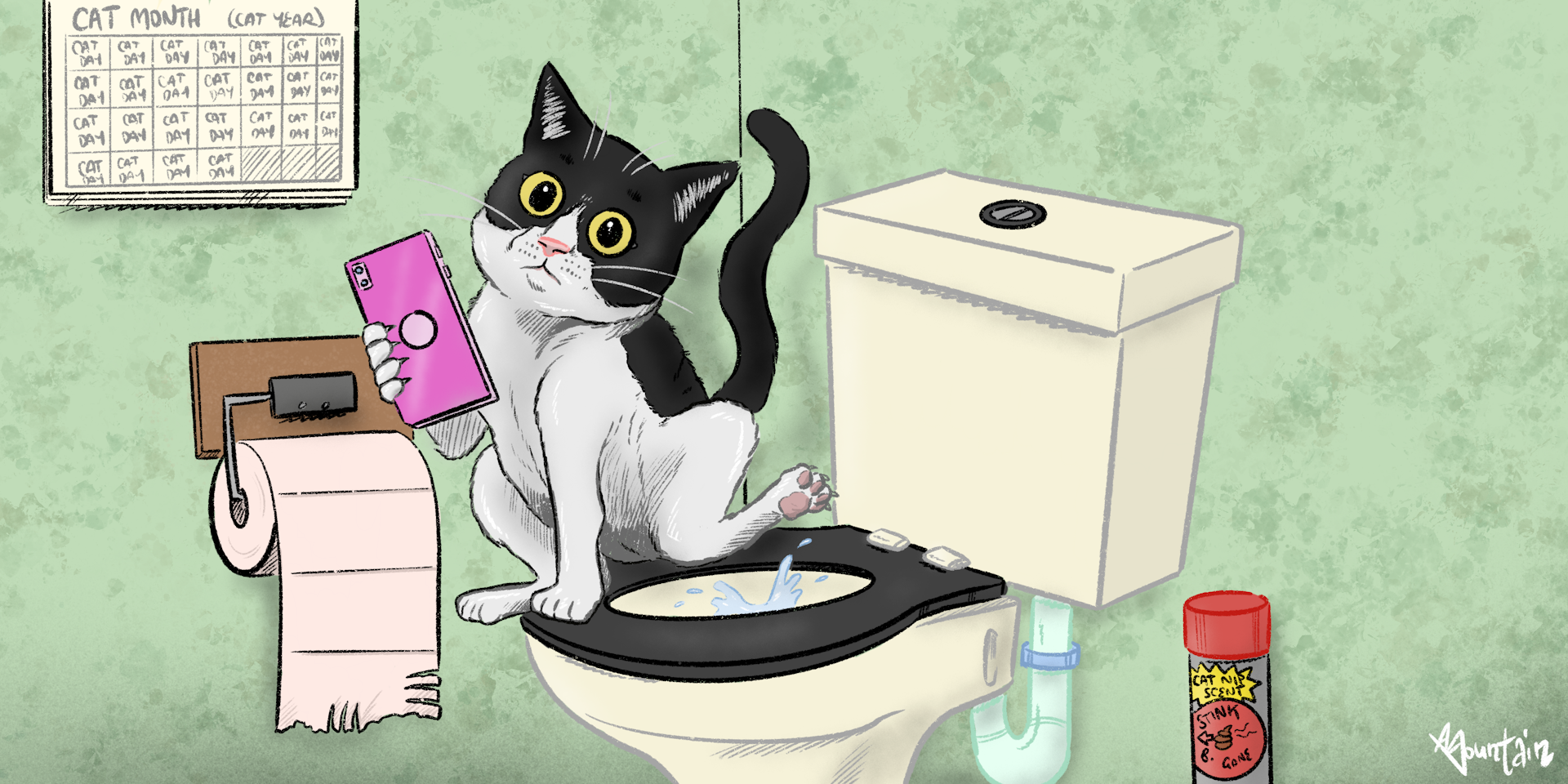Prevent Bathroom Emergencies: Don't Flush Cat Poop Down Your Toilet - Professional Advice
Prevent Bathroom Emergencies: Don't Flush Cat Poop Down Your Toilet - Professional Advice
Blog Article
Just how do you really feel in regards to How to Dispose of Cat Poop and Litter Without Plastic Bags?

Introduction
As cat proprietors, it's essential to be mindful of how we get rid of our feline good friends' waste. While it might seem convenient to purge pet cat poop down the commode, this practice can have detrimental effects for both the atmosphere and human health and wellness.
Environmental Impact
Flushing pet cat poop introduces hazardous microorganisms and bloodsuckers into the water system, posturing a substantial threat to aquatic communities. These contaminants can negatively affect marine life and concession water top quality.
Health and wellness Risks
In addition to environmental problems, flushing cat waste can likewise present health and wellness threats to humans. Feline feces may include Toxoplasma gondii, a parasite that can trigger toxoplasmosis-- a possibly serious ailment, particularly for pregnant females and individuals with damaged immune systems.
Alternatives to Flushing
Luckily, there are safer and a lot more liable methods to take care of pet cat poop. Think about the adhering to alternatives:
1. Scoop and Dispose in Trash
One of the most typical technique of taking care of cat poop is to scoop it right into a biodegradable bag and toss it in the garbage. Make certain to use a specialized trash inside story and get rid of the waste quickly.
2. Use Biodegradable Litter
Choose naturally degradable pet cat clutter made from products such as corn or wheat. These clutters are eco-friendly and can be safely disposed of in the trash.
3. Hide in the Yard
If you have a lawn, think about hiding feline waste in a marked area away from veggie yards and water sources. Make sure to dig deep enough to stop contamination of groundwater.
4. Set Up a Pet Waste Disposal System
Invest in a pet garbage disposal system especially developed for pet cat waste. These systems utilize enzymes to break down the waste, lowering smell and environmental effect.
Verdict
Responsible family pet possession expands beyond supplying food and sanctuary-- it also involves proper waste administration. By refraining from purging feline poop down the bathroom and going with different disposal techniques, we can lessen our ecological impact and secure human health.
Why You Should Never Flush Cat Poop Down the Toilet
A rose by any other name might smell as sweet, but not all poop is created equal. Toilets, and our sewage systems, are designed for human excrement, not animal waste. It might seem like it couldn’t hurt to toss cat feces into the loo, but it’s not a good idea to flush cat poop in the toilet.
First and foremost, assuming your cat uses a litter box, any waste is going to have litter on it. And even the smallest amount of litter can wreak havoc on plumbing.
Over time, small amounts build up, filling up your septic system. Most litter sold today is clumping; it is made from a type of clay that hardens when it gets wet. Ever tried to scrape old clumps from the bottom of a litter box? You know just how cement-hard it can get!
Now imagine just a small clump of that stuck in your pipes. A simple de-clogger like Drano isn’t going to cut it. And that means it’s going to cost you big time to fix it.
Parasitic Contamination
Believe it or not, your healthy kitty may be harboring a nasty parasite. Only cats excrete Toxoplasma in their feces. Yet it rarely causes serious health issues in the cats that are infected. Most people will be fine too if infected. Only pregnant women and people with compromised immune systems are at risk. (If you’ve ever heard how women who are expecting are excused from litter cleaning duty, Toxoplasma is why.)
But other animals may have a problem if infected with the parasite. And human water treatment systems aren’t designed to handle it. As a result, the systems don’t remove the parasite before discharging wastewater into local waterways. Fish, shellfish, and other marine life — otters in particular — are susceptible to toxoplasma. If exposed, most will end up with brain damage and many will die.
Depending on the species of fish, they may end up on someone’s fish hook and, ultimately on someone’s dinner plate. If that someone has a chronic illness, they’re at risk.
Skip the Toilet Training
We know there are folks out there who like to toilet train their cats. And we give them props, it takes a lot of work. But thanks to the toxoplasma, it’s not a good idea.

Do you enjoy reading about How to Dispose of Cat Poop and Litter Without Plastic Bags? Give feedback directly below. We will be pleased to hear your responses about this piece. We hope that you visit us again in the future. Do you know about another person who is fascinated with the subject? Take a moment to share it. Thank you so much for going through it.
Details Report this page